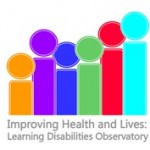
Public sector services have a legal duty to provide ‘reasonable adjustments’ for people with learning disabilities. This might mean removing physical barriers to access which is clearly important, but also includes the removal of barriers that exist as the result of the way the service is organised or delivered, ensuring that policies, procedures and training all support services to work as well for people with learning disabilities as for those without.
This report provides the findings from a survey of 119 NHS Trusts in England including 61 Acute Trusts, 25 Mental Health Trusts and 32 Primary Care Trusts.
The team found many examples of reasonable adjustments that NHS Trusts say they are providing for people with learning disabilities with the most commonly reported being terms of accessible information and the use of Health Passports and/or Health Action Plans.
Despite these self reported approaches being taken by Trusts, the project team were unclear whether such accessible information was always specifically designed for people with learning disabilities, as often information was only available ‘on request’ or on Trust intranet sites.
Other areas where Trusts reported adjustments were in the areas of policies concerning mental capacity, staff training concerning communicating effectively with people with learning disabilities, having Trust patients with learning disabilities who have made use of an Independent Mental Capacity Advocate, considering the views of people with learning disabilities and carers at Trust Board level and having Equality Impact Assessments. Few Trusts however provided evidence to support statements in these areas.
The use of specialist learning disability staff to act as liaison, particularly from Community Learning Disability Teams was a strategy commonly reported. The project team point out that it was not always clear whether this approach included a strategic role to enable Trusts to change systems and procedures to become more accessible for patients with learning disabilities.
The team point out that only a minority of responding Trusts provided specific information about people with learning disabilities using the Trust services, which suggested that services are not yet being provided to an adequate standard even though work is clearly underway to improve matters and provide appropriate adjustments.
Visit the Improving Health and Lives website
Reasonable adjustments for people with learning disabilities in England 2010: A national survey of NHS Trusts, Hattton C et al., Improving Health and Lives, 2011.
